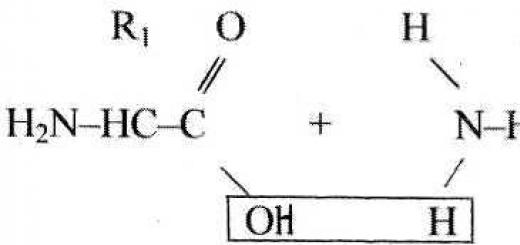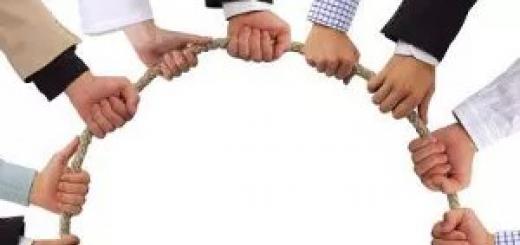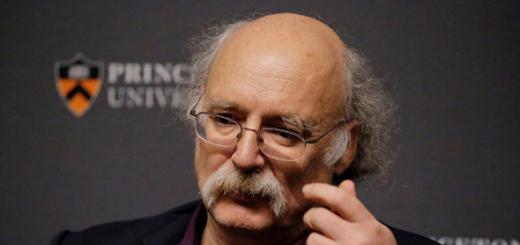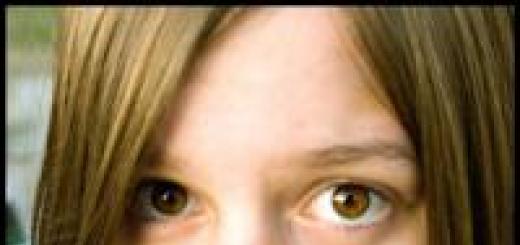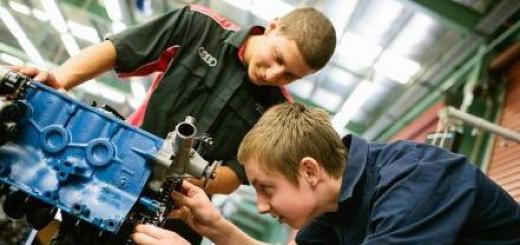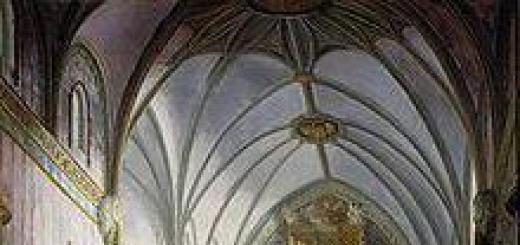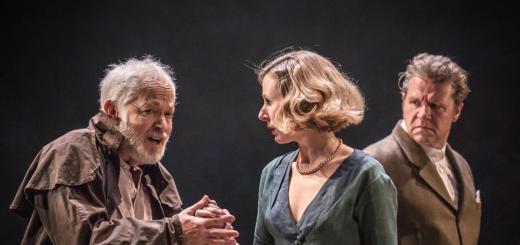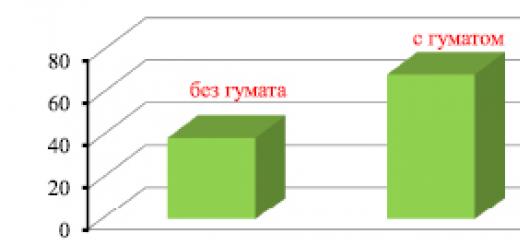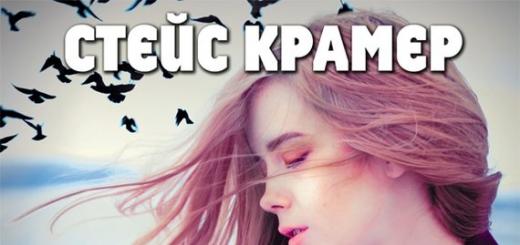IN last years Considerable attention is paid to the problems of children with special health conditions (CHD). What are these and how to solve them? Let's try to figure it out.
Disabilities of health (HD). What it is?
Scientific sources of literature describe that a person with disabilities has certain limitations in everyday life. We are talking about physical, mental or sensory defects. A person therefore cannot perform certain functions or duties.
This condition can be chronic or temporary, partial or general.
Naturally, physical limitations leave a significant imprint on psychology. Typically, people with disabilities tend to isolate themselves and are characterized by low self-esteem, increased anxiety and lack of self-confidence.
Therefore, work must begin from childhood. Significant attention within inclusive education should be paid to social adaptation disabled people.
Three-tier disability scale
This is the British version of it. The scale was adopted in the eighties of the last century World Organization healthcare. It includes the following steps.
The first is called “disease”. This refers to any loss or abnormality (psychological/physiological, anatomical structure or function).
The second stage involves patients with defects and loss of ability to perform activities that are considered normal for other people.
The third stage is incapacity (disability).
Types of oats
In the approved classification of disorders of the basic functions of the body, a number of types are identified. Let's look at them in more detail.
1. Disorders of mental processes. We are talking about perception, attention, memory, thinking, speech, emotions and will.
2. Impairments in sensory functions. These are vision, hearing, smell and touch.
3. Violations of the functions of respiration, excretion, metabolism, blood circulation, digestion and internal secretion.
4. Changes in statodynamic function.

Disabled children who belong to the first, second and fourth categories make up the majority of the total. They are distinguished by certain deviations and developmental disorders. Therefore, such children require special, specific methods of training and education.
Psychological and pedagogical classification of children who belong to the special education system
Let's consider this issue in more detail. Since the choice of techniques and methods of training and education will depend on this.
- Children with developmental disorders. They lag behind in mental and physical development due to the fact that there is organic damage to the central nervous system and dysfunction of the analyzers (auditory, visual, motor, speech).
- Children who have developmental disabilities. They differ in the deviations listed above. But they limit their capabilities to a lesser extent.
Children with disabilities and disabled children have significant developmental disabilities. They enjoy social benefits and benefits.
There is also a pedagogical classification of disorders.
It consists of the following categories.
Children with disabilities:
- hearing (late-deafened, hard-of-hearing, deaf);
- vision (impaired vision, blind);
- speech (various degrees);
intelligence; - delayed psychospeech development (DSD);
- musculoskeletal system;
- emotional-volitional sphere.
Four degrees of impairment
Depending on the degree of dysfunction and adaptation capabilities, the degree of health impairment can be determined.
Traditionally there are four degrees.
First degree. The development of a child with disabilities occurs against the background of mild to moderate dysfunction. These pathologies may be an indication for recognition of disability. However, as a rule, this does not always happen. Moreover, with proper training and upbringing, the child can fully restore all functions.
Second degree. This is the third group of disability in adults. The child has pronounced disturbances in the functions of systems and organs. Despite treatment, they continue to limit his social adaptation. Therefore, such children need special learning and living conditions.
Third degree of health impairment. It corresponds to the second disability group in an adult. There is a greater severity of disorders that significantly limit the child’s capabilities in his life.
Fourth degree of health impairment. It includes pronounced dysfunctions of systems and organs, due to which the child’s social maladjustment occurs. In addition, we can state the irreversible nature of the lesions and, often, the ineffectiveness of measures (therapeutic and rehabilitation). This is the first group of disability in an adult. The efforts of teachers and doctors are usually aimed at preventing a critical condition.
Developmental problems of children with disabilities
This is a special category. Children with disabilities are distinguished by the presence of physical and mental disabilities that contribute to the formation of disorders general development. This is a generally accepted position. But it is necessary to understand this issue in details.
If we talk about a child with minor disabilities, we have already defined what this is, then it should be noted that by creating favorable conditions, most developmental problems can be avoided. Many disorders do not act as barriers between the child and the outside world. Competent psychological and pedagogical support for children with disabilities will allow them to master the program material and study together with everyone else. secondary school, attend a regular kindergarten. They can communicate freely with their peers.

However, disabled children with serious disabilities need special conditions, special education, upbringing and treatment.
State social policy in the field of inclusive education
In Russia, in recent years, certain areas of social policy have been developed that are associated with an increase in the number of children with disabilities. What this is and what problems are solved, we will consider a little later. For now, let's note the following.
The basic provisions of social policy are based on modern scientific approaches, available material and technical means, a detailed legal mechanism, national and public programs, a high level of professional training of specialists, etc.
Despite the efforts made and the progressive development of medicine, the number of children with disabilities growing steadily. Therefore, the main directions of social policy are aimed at solving the problems of their education at school and stay in preschool institutions. Let's look at this in more detail.
Inclusive education
Education of children with disabilities should be aimed at creating favorable conditions for realizing equal opportunities with peers, obtaining an education and ensuring a decent life in modern society.

However, the implementation of these tasks must be carried out at all levels, starting from kindergarten and finishing school. Let's look at these stages below.
Creating a “barrier-free” educational environment
The basic problem of inclusive education is to create a “barrier-free” educational environment. The main rule is its accessibility for children with disabilities, solving problems and difficulties of socialization.
In educational institutions that provide their support, it is necessary to comply with general pedagogical requirements for technical equipment and facilities. This is especially true for fulfilling everyday needs, developing competence and social activity.
In addition, special attention should be paid to the upbringing and education of such children.
Problems and difficulties of inclusive education
Despite the work being done, when teaching and raising children with disabilities, not everything is so simple. Existing problems and the difficulties of inclusive education come down to the following positions.
Firstly, the group of children does not always accept a child with disabilities as “one of their own”.
Secondly, teachers cannot master the ideology of inclusive education, and there are difficulties in implementing teaching methods.
Thirdly, many parents do not want their normally developing children to go to the same class with a “special” child.
Fourthly, not all disabled people are able to adapt to conditions ordinary life, without requiring additional attention and conditions.
Children with disabilities in a preschool institution
Children with disabilities in preschool educational institutions are one of the main problems of a non-specialized kindergarten. Because the process of mutual adaptation is very difficult for the child, parents and teachers.

The priority goal of the integrated group is the socialization of children with disabilities. For them preschool becomes the initial step. Children with different abilities and developmental disabilities must learn to interact and communicate in the same group and develop their potential (intellectual and personal). This becomes equally important for all children, as it will allow each of them to push the existing boundaries of the world around them as much as possible.
Children with disabilities at school
The priority task of modern inclusive education is to increase attention to the socialization of children with disabilities. An approved adapted program for children with disabilities is required for training in a general education school. However, the currently available materials are scattered and not integrated into a system.
On the one hand, inclusive education in secondary schools is beginning to appear, on the other hand, the heterogeneity of the composition of students is increasing, taking into account the level of their speech, mental and mental development.
This approach leads to the fact that the adaptation of both relatively healthy children and children with disabilities is significantly hampered. This leads to additional, often insurmountable difficulties when implementing the teacher’s individual approach.

Therefore, children with disabilities cannot simply study at school on an equal basis with others. For a favorable result, certain conditions must be created.
Main areas of work in the inclusive education system
For the full development of a child with disabilities at school, it is necessary to work in the following areas.
Firstly, in order to solve problems, it is recommended to create a group of psychological and pedagogical support in an educational institution. Its activities will include the following: to study the developmental features of children with disabilities and their special needs, to draw up individual educational programs, and to develop forms of support. These provisions must be recorded in a special document. This is an individual card of psychological and pedagogical support for the development of a child with disabilities.
Secondly, constant adjustment of techniques and methods of teaching and education is necessary.

Third, a review should be initiated by the support team curriculum, taking into account the assessment of the child’s condition and the dynamics of his development. As a result, an adapted version is being created for children with disabilities.
Fourthly, it is necessary to regularly conduct correctional and developmental classes aimed at increasing motivation and development cognitive activity, memory and thinking, knowledge of one’s personal characteristics.
Fifthly, one of the necessary forms of work is working with the family of a disabled child. Its main goal is to organize assistance to parents in the process of mastering practical knowledge and skills necessary in raising and teaching children with disabilities. In addition, it is recommended:
- actively involve the family in work educational institution, providing psychological and pedagogical support;
- provide parental counseling;
- teach the family the techniques and methods of assistance available to them;
- organize feedback from parents to the educational institution, etc.
In general, it should be noted that inclusive education in Russia is just beginning to develop.
Shishkina Maria Nikolaevna, senior methodologist of the Municipal Budgetary Institution additional education Palace of Children's Creativity in the city of Pyatigorsk, Stavropol Territory.
The article reveals and shows the directions of work with children with disabilities in the Palace of Children's Creativity in the city of Pyatigorsk.
Date of publication: 03/09/2017
The role of additional education in the upbringing and training of children with disabilities.
The article reveals and shows the directions of work with children with disabilities in the Palace of Children's Creativity in the city of Pyatigorsk. Intended for the parent community, teachers of additional education. Our institution strives by all available means to provide conditions for the creative development of children with disabilities. We have our own rich experience, new opportunities have appeared to use Newest technologies in the process of socialization of children with disabilities.
The health and well-being of children is the main concern of the family, state and society. One of the main tasks of the activities of additional education institutions is the socialization of children in conditions modern life and their creative development.
When solving this problem, special attention is paid to working with children with disabilities, as a category of children who especially need help and support not only from loved ones, but also from society.
Not so long ago, concepts such as “special” child, “child with disabilities” and even “special family” came into pedagogical use. The modern approach to providing assistance and support to children with disabilities is focused on including them among ordinary peers, which reflects the realization of children’s rights to receive an education.
Being an important link in the multifaceted process of forming and educating a child’s personality, the family by itself cannot solve the difficult task of including a person in a complex and contradictory the world. The education system, including additional education, plays a big role.
In the city of Pyatigorsk, and in our institution (the Palace of Children's Creativity), active work is being carried out aimed at creating conditions for the equal participation of children with disabilities in various forms of interaction with healthy children.
To ensure accessibility and resource readiness of the institution to accept children with disabilities, the following types of work were carried out in the Palace of Children's Creativity in 2015: a specialized room for the disabled was equipped and toilets were reconstructed. These events were carried out as part of the implementation of the subprogram “ Accessible environment» state program Stavropol Territory “Social support for citizens.”
As part of the program, our institution plans to carry out work to expand doorways, install a staff call system, handrails, anti-slip coating, purchase ramps, a lift, information stands, and tactile pictograms.
The teaching staff of the Palace of Children's Creativity is a community of like-minded professionals who are highly qualified, intelligent, friendly, responsive teachers. Accessibility, quality, efficiency of education are the main thing in work teaching staff Palace.
The Palace of Children's Creativity implements educational programs of artistic, aesthetic, cultural, socio-pedagogical, natural science, physical education, sports, environmental and biological orientations.
In the Palace and on the basis of schools, an orphanage, more than 1000 children are educated in 42 children's creative associations: choreographic, music, vocal studios,
arts and crafts, early intellectual development children and many others.
Since September 2014, on the basis of the Palace, a city innovation platform has been implemented on the topic: “Socialization of children with disabilities through additional education.”
Children with disabilities have the opportunity to study in various creative groups, attend leisure activities, take part in concerts, and arts and crafts exhibitions.
Children with disabilities are a complex category that requires increased pedagogical, psychological, sociological, medical, and public attention.
Very often, children with disabilities have limitless talents. And teachers are obliged to work with each such child individually and painstakingly.
One of the areas that determines the effectiveness of an institution’s activities in the field of working with children with disabilities is improving the system of training teaching staff to work with this category of children. Teachers of the Children's Creativity Palace constantly improve their professional competence in this area through full-time and distance courses advanced training, participation and presentation of their experience at training seminars, teacher councils, conferences at various levels.
Our institution uses the potential of special (correctional) educational institutions in the city to train teachers to work with children with disabilities. In 2014, at our institution, a training seminar was held for teachers of the Palace of Children's Creativity on the topic “Features of working with hearing-impaired children in additional education.” At this seminar, teachers from “Special (correctional) general education boarding school No. 27” shared their experience of working with hearing-impaired children with the teachers of our institution.
In 2014, teachers and methodologists of the Palace of Children's Creativity took part in the 1st regional correspondence scientific and practical conference dedicated to the problems of additional education in the Stavropol Territory. An article was published on the role of additional education institutions in the upbringing and training of children with disabilities.
From November 16 to 18, 2015, Deputy Director for educational work of the Palace of Children's Creativity Natalya Vladimirovna Kurilo takes part in the All-Russian scientific and practical conference in Moscow on the topic “Topical issues of introducing additional educational programs oriented towards the needs of children with disabilities.”
In the search for interesting and effective forms and methods of training and education, we are helped by studying the experience of working with children with disabilities and disabilities in Russia and abroad via the Internet.
In providing conditions and opportunities for the development and education of children with disabilities, a special role belongs to the educational psychologist.
Psychologist at the Palace of Children's Creativity Victoria Sarkisovna Chilingaryan develops recommendations in accordance with the age and individual characteristics of children, the state of their somatic and mental health, conducts activities that help improve the professional competence of teachers, and includes parents in solving correctional and educational problems.
The work scheme of a psychologist with children with disabilities in our institution is as follows:
To begin with, an initial meeting of the psychologist with the family is held in order to get to know each other and collect information about the child’s development and to clarify the educational request on the part of the parents. Then the teacher creates a personal file, which records the information received about the child. Then the studio’s social passport is filled out and handed over to the psychologist.
At the next stage, employees of the educational institution and administration are involved in working with children of this category. The administration, in turn,
contributes to the creation of special conditions that involve the formation of an adapted educational environment. The speech therapist and psychologist give recommendations on how to implement an individual approach to children in accordance with a specific diagnosis.
At the third stage, organizational work is carried out to design, develop and approve an educational route for a child with disabilities. Taking into account age and individual characteristics child, medical indicators, parents’ expectations, the goals and objectives of the individual educational route are clearly formulated (the need to supplement or change is discussed educational schedule, the forms of education, the mode of attending classes, both group and individual, are determined. These individual educational routes include the content of the main sections of the basic program, as well as correctional directions for a particular child, recommended by the institution’s specialists.
Teachers constantly monitor the effectiveness of mastering the educational program and the achievements of children, record the dynamics of the development of students’ creative abilities, which is reflected in individual cards personal development.
The majority of children with disabilities may have weakened memory, fatigue, and slow perception. Therefore, educational work is built taking into account the characteristics, focusing on individuality, dosing the educational load. Frequent changes in types of activities, physical education minutes during classes and rehearsals, and repeated repetition are mandatory elements when working with children. Of course, it will be necessary to constantly adjust the route, find effective methods work for successful learning, relatively speaking, adapting it for the child.
At the final stage, a final meeting is held with parents to determine further forms of work with the child; teachers and specialists are given recommendations, advice, consultations, and reminders. Teachers summarize their experience at seminars, round tables, conferences, internal and city methodological associations.
The success of mastering the program, an individual approach to each child, and the created conditions for the creative development of children with disabilities produce positive results.
Students of studios with disabilities actively take part in events at the municipal level: exhibitions of fine and arts and crafts, holiday concerts, New Year's performances, Christmas and Easter festivals.
Children with disabilities from the studios of the Palace of Children's Creativity were awarded at such competitions as the city festival of children's, youth and family creativity "Happy Childhood" (Grand Prix, fine arts studio "Gardarika")
City festival-competition of the patriotic song “Soldier's Envelope” (Vitaly Danielyan, studio “Voice Voices”, 1st degree Laureate diploma), XII South Russian festival-competition of arts “Applause” in Essentuki (Vitaly Danielyan, studio “Zonkie Voices”, Diploma of Laureate of the 2nd degree).
The forms and methods of work are varied, but they are all based on long-term traditions, joint holidays and events. Our students, despite their illnesses and illnesses, must remain kind, sympathetic people. Positive human qualities and actions must be a priority. Many of our traditional activities are aimed specifically at realizing our human qualities.
The Palace of Children's Creativity is a fertile environment where the talent of any child can reveal itself. The palace works in close creative collaboration with various institutions. The result of such cooperation is a synthesis creative work and joining forces in carrying out significant events aimed at teaching and raising children with disabilities.
We attract children with disabilities studying in special correctional general education boarding school No. 27, children from correctional classes and groups of schools and kindergartens in the city of Pyatigorsk, children undergoing treatment in sanatoriums in the city of Pyatigorsk, the Pyatigorsk clinic "BI", pupils of orphanages and boarding schools in the city of Pyatigorsk to participate in various events: performances, New Year's events for children, holiday concerts, the city festival of children's, youth and family creativity "Happy Childhood".
We also involve children from the Living Thread children's social rehabilitation center. The Living Thread Center is known in the city of Pyatigorsk for its noble activities: it deals with the social adaptation of children with disabilities (cerebral palsy, autism, etc.), and also provides assistance to large and low-income families.
Sports socialization of disabled people, rehabilitation through physical activity and physical culture- an integral part of the work of the Palace of Children's Creativity. In 2014, students of the Palace of Children's Creativity took part in the opening ceremony of the All-Russian Spartakiad for disabled children and children with disabilities.
Thus, our institution strives by all available means to provide conditions for the creative development of children with disabilities. We have a wealth of experience and new opportunities have emerged to use the latest technologies in the process of socialization of children with disabilities. We have to face many problems in the process of working with children with disabilities, but we are actively helped by parents, specialists from the social protection committee, medical workers and many other institutions.
1One of the directions for improving the process of social adaptation of students with disabilities is the development of a model of a system of additional education that meets the requirements of the Federal State educational standards students with disabilities and students with mental retardation. Disturbances in the activity of analyzers, the musculoskeletal system, and cognitive activity of children with disabilities justify the need to develop the content of additional education aimed at improving the impaired qualities. Materials from domestic research do not fully represent models of additional education for children with disabilities. The article presents materials from a study carried out within the framework of the Project “Advanced training of specialists” organized by the Ministry of Education and Science of the Russian Federation educational organizations implementing adapted educational programs in terms of implementation teaching aid on social and everyday adaptation in 2017.”
social adaptation
special education
children with disabilities
1. Jurisprudence with the basics of family law and the rights of people with disabilities: textbook. for institutions of higher education vocational education/ ed. IN AND. Scatulla. – M.: Prometheus, 2017. – 578 p.
2. On the main results of a survey in the field of additional education and sports training of children in the Russian Federation [Electronic resource]. – URL: http://www.gks.ru/free_doc/new_site /population/obraz/Analit_spravka.pdf (access date: 09/21/2017).
3. Standard of living / Number of recipients of monthly cash payments (MCP) in the Russian Federation // Official statistics. federal Service state statistics[Electronic resource]. – URL: http://www.gks.ru/wps/wcm/connect/rosstat_main/rosstat/ru /statistics/population/level/# (access date: 09/21/2017).
4. Education in 2014 // Operational information. Federal State Statistics Service [Electronic resource]. – URL: http://www.gks.ru/wps/wcm/connect/rosstat_main /rosstat/ru/statistics/population/education/ (date of access: 09/15/2017).
5. Education in 2016 // Operational information. Federal State Statistics Service: [Electronic resource]. – URL: http://www.gks.ru/wps/wcm/connect/rosstat_main /rosstat/ru/statistics/population/education/ (date of access: 09/21/2017).
6. Evtushenko I.V. Formation of the foundations of musical culture for mentally retarded schoolchildren in the system special education: dis... dr. ped. Sciences: 13.00.03. – Moscow, 2009. – 434 p.
7. Evtushenko I.V. Model of musical education of mentally retarded schoolchildren in the system of special education / I.V. Evtushenko // Intersectoral approaches in organizing training and education of persons with disabilities. – M.: Sputnik+, 2014. – P. 58-78.
8. Evtushenko E.A. The use of the regulatory function of theatrical activities in the education of mentally retarded children / E.A. Yevtushenko // Social and humanitarian knowledge. – 2010. – No. 4. – P. 341-348.
9. Evtushenko E.A. Moral education of mentally retarded primary schoolchildren in extracurricular theatrical activities: diss... Cand. ped. Sciences: 13.00.03. – Moscow, 2010. – 224 p.
10. Evtushenko E.A. The role of theatrical activities in the moral education of mentally retarded younger children school age/ E.A. Yevtushenko // Bulletin of Cherepovets State University. – 2010. – No. 3. – P.12-15.
11. Oligophrenopedagogy / T.V. Alysheva, G.V. Vasenkov, V.V. Voronkova and others - M.: Bustard, 2009. 400 p.
12. Programs of special (correctional) educational institutions of the VIII type. Preparatory, grades 1–4. – M.: Education, 2006. – 192 p.
13. Evtushenko I.V., Levchenko I.Yu., Falkovskaya L.P. Features of the development of a program for early assistance and support for children with disabilities and their families / I.V. Evtushenko, I.Yu. Levchenko, L.P. Falkovskaya // Modern problems of science and education. – 2015. – No. 6; URL: http://www..10.2017).
14. Evtushenko I.V. Formation of professional and legal competence of a teacher-defectologist / I.V. Yevtushenko // Correctional pedagogy. – 2008. – No. 1 (25). – pp. 57-66.
15. Evtushenko I.V., Evtushenko I.I. Fundamentals of formation of humane interpersonal relationships in a class group of high school students in the conditions of inclusive education / I.V. Evtushenko, I.I. Evtushenko // Current problems of training and education of persons with disabilities: materials of the IV International Scientific and Practical Conference (Moscow, June 26-27, 2014). – Moscow, 2014. – P. 130-136.
Currently, the system of regulatory and legal support for general, special and additional education of students with disabilities (LD) is being improved (Federal Law No. 273-FZot 12/29/2012 “On Education in the Russian Federation”; Government Resolution No. 295 dated 04/15/2014 "On approval of the state program of the Russian Federation "Development of Education" for 2013-2020"; Government Order dated 09/04/2014 No. 1726-r "On approval of the Concept for the development of additional education for children"; Order of the Ministry of Education and Science dated 08/29/2013 No. 1008 " On approval of the Procedure for organizing implementation educational activities for additional general education programs"; Letter of the Ministry of Education and Science No. 09-3242 dated November 18, 2015 “ Guidelines on the design of additional general development programs"; Resolution of the Chief State Sanitary Doctor of the Russian Federation dated July 4, 2014 No. 41 “Sanitary and epidemiological requirements for the design, content and organization of the operating mode of educational organizations for additional education of children” (SanPiN 2.4.4.3172-14); Resolution of the Chief State Sanitary Doctor of the Russian Federation dated July 10, 2015 No. 26 “Sanitary and epidemiological requirements for the conditions and organization of training and education in organizations carrying out educational activities according to adapted basic general education programs for students with disabilities” (SanPiN 2.4.2.3286-15) ) .
According to modern ideas, additional education, as a specific type of education aimed at realizing a person’s educational needs in improving intellectual, spiritual, moral, physical and (or) professional qualities, does not imply an increase in the level of education. In the process of additional education, the creative abilities of children and adults develop, the needs for the formation of a culture of a healthy lifestyle, health promotion, as well as the organization of their free time. Additional education of children increases their adaptability to life in society, provides professional guidance, as well as identifying the abilities and potential of students.
In accordance with the Concept for the Development of Additional Education for Children dated September 4, 2014 No. 1726-r, the content of additional educational programs is aimed at: a) creating the conditions necessary for personal development, positive socialization and professional self-determination; b) satisfaction of individual needs in cognitive, artistic-aesthetic, spiritual-moral, physical, research development; c) formation and improvement of creative abilities, identification, development and support of talented students; d) providing spiritual, moral, legal, patriotic, labor education; e) creating a culture of healthy lifestyle, safety, health promotion; f) training of athletes, including students with disabilities and disabled children.
According to the Procedure for organizing the implementation of educational activities in additional general education programs, organizations implement additional general education programs throughout school year, including holidays. Organization educational process carried out in accordance with voluntariness, the interests of students, according to individual curricula and in associations of additional education, formed into groups of students of the same age or different age categories (multi-age groups), single-level or multi-level training in the form of clubs, sections, circles, laboratories , studios, orchestras, creative teams, ensembles, theaters. Classes in associations are conducted in mass, group, subgroup and individual forms of technical, natural science, physical education and sports, artistic, tourism, local history, social and pedagogical orientation. The duration of classes is determined by the local regulatory act of the educational organization. The duration of the additional educational program is determined by the educational organization independently, taking into account the category of students, their age, and health characteristics.
The current situation is characterized by a tendency to increase the number of children with disabilities. At the beginning of 2010, according to the Federal State Statistics Service (Rosstat), there were 541,825 disabled children in Russia; on January 1, 2015, the number of disabled children was 603,074 (taking into account the number of disabled children in the Crimean Federal District), January 1, 2017 year, the number of disabled children increases to 632,273 people. Data from the Ministry of Education and Science indicate that in 2014, in general education organizations, the share of students with disabilities was 3.2%, children with disabilities - 1.7% of the total number of students; in 2016 this ratio is: 3.8% and 1.8%, respectively. Considering the fact that the general population of general education organizations (without children preschool age) in 2014 amounted to 14,091,600 students, 450,931.6 were students with disabilities / 239,557.2 were disabled children; in 2016, the population of general education organizations (excluding preschool children) increases to 15,217,400 students, of which 578,261 are students with disabilities, 273,913 are students with disabilities. Of the total number of students studying in bachelor's, specialist and master's programs in 2014, the number of students with disabilities, people with disabilities and children with disabilities was 25,200 people, and in 2016 it is reduced to 18,400 students. Education of students with disabilities and/or disabilities using adapted educational programs in 2016 was implemented for 11.2% of students.
The basis of modern methodology and conceptual provisions for the role of additional education in the social adaptation of children with disabilities is the cultural-historical theory of L.S. Vygotsky, according to which mental development and personality formation are determined by the social conditioning of pedagogical interaction. The main provisions of this concept include: a) social adaptation of children with disabilities is a specially organized pedagogical process, the predicted end result of which is the individual’s flexible response to changes public life, in the course of a child with disabilities mastering the cultural experience accumulated by previous generations, taking into account the existing capabilities of the child himself, with mandatory interaction with the teacher, relatives, immediate environment, and peers; b) despite the peculiarities of the personal development of children with disabilities, the formation of qualities in them that are significant for entering society as equal participants in social relationships occurs according to the same patterns and in sequence as their peers with normative development; c) the process of social adaptation of children with disabilities in the additional education system depends not so much on the severity of existing developmental disorders, but on the presence of special educational conditions; d) teaching activities teaching staff, implementing adapted additional educational programs, provides a combination of educational, correctional and developmental, psychotherapeutic and health-improving technologies; e) the patterns of social adaptation of children with disabilities in additional education are: goals, objectives, content that meet the needs of society, the state, the requirements of moral standards, and traditions; its results are mediated by the coordinated actions of various specialists and the influence of educational factors; the activity of children with disabilities in the process of social adaptation will depend on taking into account their capabilities, interests, emotional and personal interaction aimed at developing an optimistic attitude; the effectiveness of social adaptation can be determined by the degree of independence, initiative of a child with disabilities, and the content of prosocial activities; f) three factors of social adaptation of children with disabilities play a key role: 1) various types of activities of children with disabilities - educational, play, work, social; 2) various types pedagogical activity- management, socialization, training and education, overcoming existing developmental disorders; 3) the children's team as a community that contributes to the formation of positive personal qualities children with disabilities (adequate assessment of social processes, interests, preferences, actions approved by society); g) the process of social adaptation of children with disabilities in the system of additional education is based on a systemic understanding of this process and involves the implementation of a group of general, particular and specific principles; their differentiation provides for: general patterns of education, features of the process of social adaptation as a type of educational activity, the uniqueness of social adaptation of children with disabilities in the system of additional education; h) the process of social adaptation of children with disabilities involves the use of lesson and extracurricular activities and associated interpersonal interactions with peers with normative development that promotes more successful integration into society.
The content of the process of social adaptation of children with disabilities is the following interrelated components: motivational(needs, motives, interests in social self-improvement, social values); cognitive(a system of social ideas and concepts about phenomena and events of social life, elements of legal documents regulating the social and legal system of the state, an active social and legal position); emotional-volitional(emotional experiences of the essence of social reality; volitional manifestations, such as the readiness of an individual with disabilities to confront emerging difficulties in the implementation of socially significant goals); active(adequate assessment and self-criticism; compliance with norms and socially accepted rules of behavior; meaningful solution of emerging problems; skills of voluntary and conscious social activity).
The core component of the model of social adaptation of children with disabilities in the process of additional education is target: achieving successful socialization of children with disabilities. Ideally, socialization can be represented as the formation of a diverse developed personality, combining moral principles, artistic abilities and physical perfection, ready for independent living and participation in productive activities. The model provides for the implementation of the following tasks: formation of motivation, needs of social adaptation, mastery of social values; accumulation of social concepts and ideas; the formation of social feelings, emotional experiences accompanying social or antisocial actions, volitional manifestations of children with disabilities; enriching the experience of behavior and actions approved by society. The process of social adaptation of children with disabilities involves the implementation of general didactic and specific principles: environmental conformity, cultural conformity, humanism, social partnership, collectivism, unity of diagnosis and correction, early start of psychocorrectional measures, individualization and differentiation, taking into account the correctional-compensatory and therapeutic properties of the additional educational process.
Natural conformity determines the need to treat the child as an integral part of nature, taking into account his age, gender, physiological characteristics, as well as the maximum use of natural factors, objects of living and inanimate nature for the formation of environmental thinking and environmental activities. Cultural Conformity involves the use of cultural achievements in the process of social adaptation, “ introduction to the culture of a child with disabilities": values of humanity, national traditions, local customs of regions and territories. The importance of introducing children with disabilities to both their own national culture and the culture of people living together is emphasized, promoting the formation of understanding, respect for the languages, traditions, customs of other nationalities, and friendliness. Humanism defines the attitude towards a child with disabilities as an equal participant in the educational process, and not as a passive object of external influence, taking into account his interests, needs, and capabilities. The humanistic nature of additional education presupposes the freedom of creativity and activity of a child with disabilities. The upbringing, formative function of the additional education teacher becomes leading in relation to his controlling, training and information functions. Social partnership, collectivism provide for the creation of a student body that allows children with disabilities to expand their social experience, create conditions for productive and comfortable social self-determination, adequate interaction, and activate social adaptation, self-realization, and creative self-expression. Unity of diagnosis and correction in the social adaptation of children with disabilities provides for the possibility of effective correctional pedagogical work only on the basis of timely identification of existing deviations, determination of prospects for mental development and assessment of the child’s potential capabilities. Early start of psychocorrectional measures involves taking into account the sensitive periods of development of a child with disabilities. Despite the specifics, children with disabilities are capable of development that is qualitatively and quantitatively unique. Special conditions that take into account the compensatory capabilities of the body are of priority importance for the successful social adaptation of children with disabilities. The content of adapted additional educational programs should help to overcome certain developmental disorders inherent in children with disabilities, or weaken others, due to which the process of social adaptation occurs more effectively. The earlier the implementation of psychocorrectional measures begins, the higher their results. Individualization and differentiation of the process of social adaptation consists in the variability of the teacher’s use of various forms and methods of additional education in order to achieve success in working with each child. Individualization involves a comprehensive study of the interests, needs, and capabilities of each child, since due to the heterogeneity of manifestations of impaired development, all children are individual. The distribution of children with disabilities, during frontal education, into conditional subgroups in accordance with their success in mastering the requirements of an adapted additional educational program constitutes the content of a differentiated approach. Accounting for correctional-compensatory and therapeutic-therapeutic properties additional educational process. Insufficient attention is paid to the correctional-compensatory and therapeutic-therapeutic properties of the additional educational process, which in most cases is considered as something secondary and entertaining. A specially organized protective pedagogical regime of additional education can not only mobilize the body’s defense mechanisms, activate potential, not fully developed capabilities, but also increase the readiness of children with disabilities for socially significant actions, intensify cognitive processes, model positive emotional experiences, improve mental well-being, strengthen somatic and neuropsychic health.
Conclusions. The expected results of social adaptation of children with disabilities in the process of additional education are considered: improving the quality of life, demand in the labor market, employment efficiency; increasing the efficiency and effectiveness of budget expenditures through the introduction of unified approaches to additional education for people in this category; increased activity; overcoming pessimistic and dependent attitudes, isolation and self-isolation of persons with disabilities; overcoming negative attitudes both towards society and towards persons with disabilities themselves; increasing the level of social trust in society; optimization of the process of accessibility of additional education, by involving in it, in addition to state and municipal educational organizations, non-governmental organizations, public organizations and associations of disabled people, parents of students. The predicted immediate results of additional education for children with disabilities in the social adaptation of children with disabilities at different age stages are: an increase in the number of educational organizations that implement special conditions for additional education, taking into account the special educational needs of children with disabilities; advanced training of specialists involved in additional education of children with disabilities; prevention of secondary social disorders; improving the quality of life and average life expectancy of persons with disabilities; increasing the levels of employment and education of persons with disabilities; increasing the participation of persons with disabilities in various social projects; introducing successful examples into the public consciousness practical application principles of tolerant and barrier-free attitude towards persons with disabilities.
Bibliographic link
Evtushenko A.I., Evtushenko I.V. THE ROLE OF ADDITIONAL EDUCATION IN SOCIAL ADAPTATION OF CHILDREN WITH LIMITED HEALTH OPPORTUNITIES AT DIFFERENT AGE STAGES // Modern problems of science and education. – 2017. – No. 6.;URL: http://science-education.ru/ru/article/view?id=27126 (access date: 02/01/2020). We bring to your attention magazines published by the publishing house "Academy of Natural Sciences"
Nikitina Natalya Vasilievna
Sphere without boundaries!
From 2011 to 2013, a family club operated on the basis of the Children's Creativity Center "Rostock" for families, having children with disabilities. I happened to do some work with special needs children and their families. There is an opinion in society that if a child is disabled, then he is abnormal, but having encountered one-on-one with special children, I realized that ill-mannered people who do not know how to put themselves in the place of others think this way. Children studied with different diagnoses diseases: cerebral palsy, autistic people, people with disabilities, speech, hearing, vision impairments, there was a boy whose fingers were partially missing from his hand, but maybe such children are not strong in mathematics, physics, humanities, but creativity is for special people children this is huge affordable field of activity, where there are no restrictions.
Family club meetings were held monthly "Rostock", where information, advisory and psychological support was provided to families. The topic was varied: "Communicative development children» , "My family is my joy", Education in Christian traditions", “Plot-role-playing games in education children» . IN work club discussed Topics: "Hippotherapy - the path to health", “How to massage at home”, “I get to know myself and others” where GUZ specialists spoke "Nikolaev Central District Hospital", introduced new methods and techniques in massage techniques, and showed therapeutic exercises.
During classes to develop creative abilities, children learned through means artistic expression control and express your emotional condition, create a positive mood for yourself. Positive dynamics were observed in the development children, children overcame psychological barriers of isolation and alienation, learned to be more independent and organized.
Games were played with the children to get to know each other, to relieve emotional stress, competitions, and quizzes. Children received intellectual, cultural, aesthetic and physical development, overcame social exclusion through mutual assistance and mutual assistance.
Children developed creatively, making various crafts from natural and waste materials, took part in cultural and leisure socially significant events: "Mothers Day", "Autumn Gatherings", "New Year's performance", "Christmas Gatherings", "Christmas tree". Interesting and varied a decade of disabled people took place from December 1 to 10, children together with their parents participated in festive, sports and entertainment events: "Let's wish each other of good» , “If you want to be healthy, work out with us”, "Birthday Day", "Game library" in quizzes "The Magic World of Fairy Tales". Children took part in the competition drawings: "Nature and us" "Birds are our friends", master classes on making crafts from salt dough, where Ilya Kurkin, Danil Burtaev, Natalya Larina, Ildar Ashirov were awarded with diplomas.
District and regional propaganda trains were held "For healthy Lifestyle» , specialists from the State Health Institution were invited to participate "Nikolaev Central District Hospital", at which trainings were held with parents, competitive and educational events, thanks to which children received positive emotions and a sense of unity.
A sensory room is a room where a child or adult, being in a safe, comfortable environment filled with various incentives, independently or accompanied by a specialist, explores the environment.
Optimal complex effect on all senses and nervous system human, charm "living fairy tale", creating a joyful mood and a feeling of complete safety - all this allows us to talk about the uniqueness and value of sensory rooms.
Combination of different incentives (light, music, color, smells, tactile sensations) in the sensory room has different effects on the mental and emotional state person: both relaxing and tonic, stimulating, restorative. Therefore, the sensory room not only helps to achieve relaxation, but also allows you to activate various functions of the central nervous system.
Much attention was paid to conducting sociocultural events: "Defender of the Fatherland Day", "International Women's Day", "International Family Day", "Day of Defense children» , "Day of Knowledge", "Autumn Gatherings", "Mothers Day", "Decade of Disabled People", "New Year's performance", "Maslenitsa", "Birthday Day".
Children attended the circus and puppet shows.
IN summer period recovery took place from June to August children at a day camp called "Sail of Hope". The camp was attended by children from disabilities, children from low-income and large families.
Shift direction:
Cultural and leisure;
Artistic and aesthetic;
Ecological and local history;
Competitions for the best squad newspaper, games for getting to know each other and relieving emotional stress were held with the children. During all shifts, children received intellectual, cultural, aesthetic and physical development. In order to study and preserve the nature of their native land, excursions were held to the forest, to the square, to the river, to the park area, where children combined relaxation with work, clearing the areas of garbage. The children visited the local history museum, studying the history of the Nikolaev region, the history education of the village of Nikolaevka.
In order to improve the culture of education, children visited the children's library and the cultural and leisure center of the International Children's Cultural Center. Children were given educational quizzes about nature, the animal world, birds, and the history of their native land. Children took an active part in competitive programs and celebrations "Guinness Show", "Lessons in Politeness", "Sirs and Madams", "Russian Birch Festival", "Russian souvenir", "Farewell Carnival". The children were amused by relay race games "Out there on unknown paths", travel games "The earth is our common home", attention games "Merry monkeys", "Bananas", "Horses", "Fish" etc. To develop motor activity, outdoor games were carried out "Reindeer", "Caterpillar", "Carousel", "Cat and mouse" and etc.
Teachers from the children's creativity center conducted master classes with children on making three-dimensional crafts from natural and waste materials, applications from colored and corrugated paper, and drew pictures in various techniques. execution: "monotype", “on a wet sheet, with colored chalk on the asphalt, with your fingers on the sheet, thanks to which thinking, memory, and fine motor skills of the fingers develop.
IN additional education both ordinary children and special children can find themselves disabilities, as well as their parents, grandmothers and even grandfathers. Special children are very capable, they have a kind heart and a big open soul, you just need to feel it, see it, and touch it. We must learn to see the divine essence in every person, then the opinion about abnormal children and people will dissolve.














We can burn like a torch with warmth and light, bestowing it on people, or we can smolder like a rotten stump if we only serve ourselves.
V. Nikolaeva
Socially positive activity organization
additional education for children with disabilities.
In the new socio-economic conditions of our society, the question of the priority importance of the education and upbringing of children with disabilities, their socialization and development has become acute and urgent. This is evidenced by a number of regulatory documents of the Ministry of Education of the Russian Federation.
Legislative consolidation of issues related to providing appropriate conditions for the education and upbringing of children with developmental disabilities is reflected in the Constitution of the Russian Federation and the Law of the Russian Federation “On Education”.
The Law “On Education” approves state guarantees for education for persons with developmental disabilities and guarantees them:
- education and training;
- social adaptation and integration into society.
In the decision of the board of the Ministry of Education of the Russian Federation dated January 18, 2000. №1-2
“On increasing the role of the additional education system in working with children with disabilities” it is stated that the main task facing the state and society as a whole in relation to children of this category -creating appropriate conditions and providing assistance in their social rehabilitation and adaptation, in preparation for a full life in society.
The Board, in particular, decided to pay special attention to:
- integration of children with disabilities into the environment of healthy peers;
- pre-vocational training of children with disabilities in order to ensure their social vulnerability;
- develop a system of measures to intensify work with children with disabilities in institutions of additional education for children;
- strengthen the interaction of educational institutions with families of children with disabilities;
- more actively involve children with disabilities in the preparation and holding of public events with students, participation in competitions, shows, festivals, competitions, olympiads and other forms of additional education at the municipal, federal and international levels.
In the Modernization Concept Russian system education, the importance and significance of the system of additional education, which contributes to creative development children with disabilities, their adaptation in society.
Children with disabilities are a complex category of children requiring increased attention, care and understanding.
The socially positive activities of students with disabilities in the system of additional education for children are primarily focused on creating a situation of success for a student with disabilities. In fact, the training and upbringing of such a child is largely difficult due to the fact that from an early age he perceives the world around him to a greater extent as an aggressive, hostile environment, which gives rise to his desire to “hide” and go away. Overcoming such “defense” can be extremely difficult even for an experienced teacher. The inclusive education project, which is actively developing these days, is characterized by the too rapid “entry” of a child with limited health opportunities into the world of healthier peers. And often both sides are equally unprepared for such interaction. And the reason is not the lack of special conditions or organization of the environmental space of the educational institution. This problem can and should be solved.
For children who, due to health reasons, cannot attend preschool educational institutions and study in educational institutions and special institutions (since it is absent in the territory of our region) on the basis of the UNITER CDOD with approvalDeputy Chief Doctor for Childhood and Obstetrics at Ruzaevskaya Central District Hospital,a group of short-term children with disabilities in health and development “Nadezhda” was created. Admission is carried out on the basis of a personal application from parents, classes are held in the first half of the day and in the presence of parents. The reason for refusal of admission may be the lack of vacancies and contraindications of medical workers.
The group carries out its activities on the basis of a work plan approved by the administration of the Center in agreement with the Director of UNITER.
Classes are carried out according to the schedule approved by the director of the Center. The beginning of the school year is September 1. The end of the academic year is May 31.
Training is conducted in the following areas:
Defectology
Speech development;
Classes on developing a healthy lifestyle.
Classes are held on the basis of developed programs.
- "Learning to Speak"
- "Man and his health"
- "Good word"
The implementation of educational programs in a group involves the use of the following methods of corrective influence on the emotional and cognitive sphere of children with developmental disabilities:
Gaming activities (promoting the development of the ability to communicate with each other);
Physical education (development of general and fine motor skills, correction of physical development and motor apparatus);
Fine art (modelling, applique);
Psycho-gymnastics and relaxation (allowing you to relieve muscle spasms and tension, especially in the face and hands).
Formation of elementary mathematical concepts (pre-numerical period)
The work has been carried out for 3 years.
The main problems arise when trying to overcome the barrier between a child with disabilities, members of his family and society deprived of a particular illness. System school education at the same time, it is a more rigid system, since the organization itself schooling involves following a mandatory set of rules that help the teacher build relationships on the “teacher-class” principle. But the process of uniting classmates, including children with disabilities, into a single, integral community of children occurs differently. Children react sharply and directly to the “otherness” of another, and at the slightest change in the adult’s attitude towards such a child, isolation and rejection of the “ugly duckling” begins. In the system of extracurricular work, this problem is solved in two ways. Firstly, the organization of additional education itself presupposes a different, individual interaction between teacher and student. Secondly, during the lessons the presence of any family member of children with disabilities is allowed and actively encouraged. Feeling the real support of an adult, the child develops a comfortable perception of the surrounding space, anxiety and fear decrease. This greatly contributes to the maximum development of the student’s capabilities, since it is no longer necessary to overcome the barrier of socialization during classes.
The UNITER Center for Additional Education for Children has accumulated some experience in working with children with disabilities. But before the real result appeared, the staff of the educational institution had to work hard.
Initially, the tasks of working with this category of children were outlined, which subsequently determined the priority areas of activity.
A special issue is the expansion of social partnership. With effective cooperation with other institutions, including medical ones, a contingent of children is formed. There is close cooperation with the rector of the Church of St. Nicholas the Wonderworker, Fr. Gregory (holding celebrations, conversations, providing sponsorship)
Currently there are 16 students studying at our Center.These are children with mental retardation, children with various developmental disabilities, children with poor health. Everything is created for children the necessary conditions for personal development.The forms of classes used by the UNITER Center in working with children include integrated forms, individual meetings, group specialized classes: “Birds are the messengers of spring”, “How bread came to the table”. Psychological support is also provided to his family members. It has already become traditional for Easter students to visit the Ruzaevsky Church of St. Nicholas the Wonderworker. During classes, children gain experience in socialization, adapt to the society of their peers, and try to determine their own place and role in the world around them. Once again touching on the topic of creating a situation of success for children in this category, we should emphasize the urgent need to provide them with the opportunity to demonstrate their own skills and abilities to the outside world. For this purpose, holidays, creative competitions, festivals are held: “Christmas gatherings”, “Mother’s Day”, “Maslenitsa”, etc. An excursion to the bakery is organized.
Students of “Nadezhda” actively participate in All-Russian, republican and municipal festivals, competitions and exhibitions and are awarded certificates and diplomas at various levels.. For 3 years of work, the decision of the medical commission allowed students of “Nadezhda” to visit MBOU Ruzaevka and Ruzaevsky district-12 two-solution The medical commission allowed him to visit the auxiliary school in Saransk. This is the result of that socially positive activityorganization of additional education for childrenwith children with disabilities, during which they socialized and adapted to the society of their peers.
In order to work more fully with children in this category, I would like assistance to be provided in:
- Registration and provision of regulatory documents - legal framework
- Development of educational programs.
- Providing sufficient funding.
